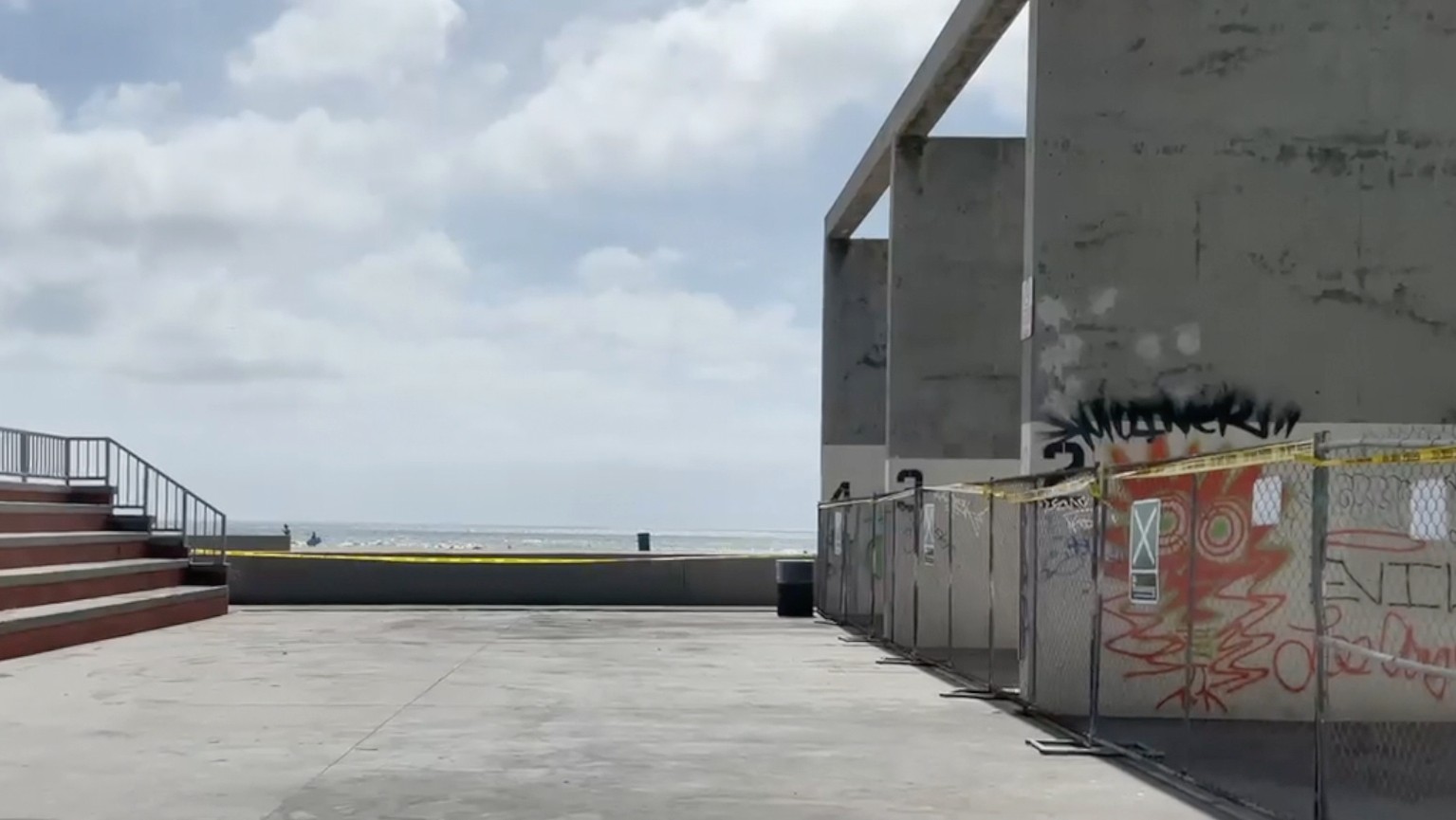Last Thursday, June 4th, the government of China and the city of Beijing noted the 20th anniversary of the Tiananmen uprising and the subsequent brutal army crackdown on protesting citizens by doing what China does especially well right now: Suppressing informational media and any attempt to draw attention to unflattering past events.
Well, come on, there’s always a video camera on somewhere. How successful could they be in completely blocking out—Ouch! Hey, that guy just walked right into me with his umbrella!
And that’s what they did. When reporters from other countries showed up at Tiananmen Square last Thursday to tape their remote reports, undercover police dressed in bad sportswear brandished umbrellas. Normally Beijing citizens deploy umbrellas to block out the hot noon day sun. But on this day the not-so-undercover police moved in between reporters and their cameramen with their umbrellas fully extended … making any attempt at serious commentary or reporting look like a bad rehearsal of “Mary Poppins” with choreography by drunken soccer coaches.
In addition to this ludicrous ballet the Chinese government also reportedly rounded up dissidents and held them (now known as the “Olympics Overnight Special”) for the duration of the anniversary, and interrupted web site services including YouTube and Twitter. While some of us might embrace government action against Twitter (enforced by the Get a Life Police), most U.S. citizens would be outraged if there were organized government efforts to suppress expression or protest on any given U.S. anniversary date. Although we were fine with Bush suppressing photos of the dead returning in caskets from Iraq… and the citizen phone surveillance… and media’s role in selling the war. Still, we don’t suppress anniversaries here. We don’t have to. We’re plenty good at ignoring them on our own.
December 29, 1890. Wounded Knee. 200 Native Americans killed or wounded, including women and children, in the last of the “Indian uprisings.” July 4, 1902. The official end of the Philippine-American war. The U.S. wanted to “annex” the islands. A quarter million Filipinos dead, although varying accounts put the number much higher. Of course we don’t have to reach that far back for anniversaries we’d rather ignore. August 6 and 9. The 1945 bombings of Hiroshima and Nagasaki with 140,000 and 80,000 dead, respectively. An action meant to force Japan to surrender, although some still question the necessity to drop those bombs. June 19, 1953. Julius and Ethel Rosenberg are the first American civilians executed for espionage.
That these are “anniversary” dates in American history might be regarded as argumentative, although they are important dates. But they all involve overt actions by a government against civilians, sharing that with Tiananmen Square. Still, we don’t suppress any citation or ceremony on these dates; we simply let them slip by.
Whereas repressive China is hard at work with its efforts to erase the events in Tiananmen Square 20 years ago from the minds of its people, and we think that sort of thing is terrible. That’s why our media made a good show of pointing the finger at China last week. Because that kind of repression is akin to the mind control we feared during McCarthyism. But maybe Americans don’t need undercover cops with umbrellas. Time seems to indicate that when left to block-out dark episodes on our own, we’re often as successful as those who might erase events for us.
You’ve heard it all before… the great American propensity to not want to know or remember. Here in California, millions flock to Disneyland and enjoy ice cream while standing on a completely fabricated Main Street USA. Not quite as many visit the historical Manzanar War Relocation Center. Recently our new president has indicated a willingness to move forward and possibly let bygones be bygones regarding our post-9/11 torture episodes. He may not even need to block Twitter if he decides to go that route.
Years ago, we thought our tendency to self-suppress the darker episodes in our own history had something to do with our parents need to believe in an always just, always fair America. They had fought and won World War II, whereas we were struggling to make sense of Vietnam. Well now we are America and we have a president who is not only like us, he also makes a point of representing our better selves. And he strives to do that seven days a week. Maybe our next “hope” needs to be that in honestly dealing with our past, recent and distant, we maintain that 24/7 posture ourselves. And help him in the process.











